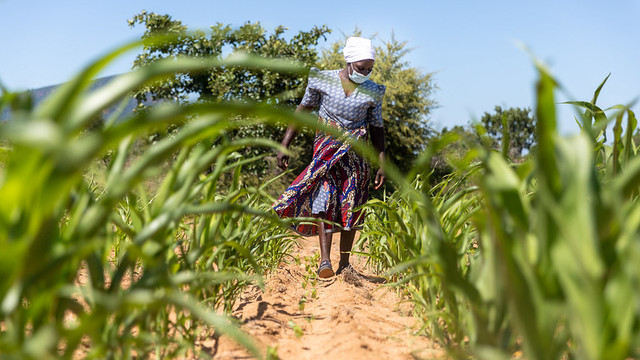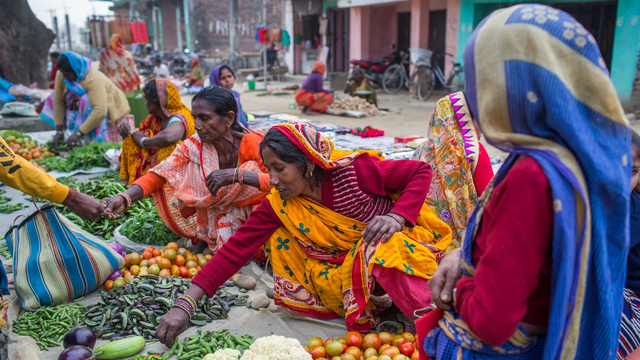Why eat wild meat? Insights from Africa and lessons for COVID-19 responses
This IIED Debates on Wednesday, 4 August explored why people eat wild meat and how to design interventions that can help improve sustainability and safety.

Woman cooking with improved fireplace in household in Bertoua, East Cameroon. The Why eat wild meat' project focuses on the Dja Faunal Reserve in southeast Cameroon (Photo: Emily Pinna/CIFOR via Flickr, CC BY-NC-ND 2.0)
Unsustainable hunting and consumption of wild meat is a known driver of biodiversity loss and can also have implications for public health. The COVID-19 pandemic has resulted in a call for a total ban on wild meat trade and consumption.
Yet millions of people across the globe depend on wild meat as an important contribution to food security.
In many rural areas, wild meat is the key source of protein in peoples’ diet and so preventing its consumption would pose a major threat to their livelihoods and wellbeing. It is therefore critical to improve understanding of why people eat wild meat, in order to design interventions that can help improve sustainability and safety.
At this online IIED Debates event, co-hosted by the Interdisciplinary Centre for Conservation Science at Oxford University, The Conservation Foundation and Fondation Camerounaise Terra Vivante, we heard findings from research in Cameroon that sought to understand the key drivers – cultural, economic, nutritional – of wild meat as a food choice and the impacts of COVID-19 on that choice.
Our speakers discussed what kind of 'wild meat alternative' interventions local people do and do not find acceptable. How can decision-support tools help intervention designers think through critical issues?
And what are the implications of these findings for the Convention on Biological Diversity (CBD) guidance on wild meat and for the design of future projects?
About the speakers
- Dilys Roe (moderator) is a principal researcher and biodiversity team leader in IIED's Natural Resources research group
- Stephanie Brittain is a postdoctoral researcher at the University of Oxford focusing on local knowledge and drivers of wild meat consumption in Cameroon
- Cedric Thibaut Kamogne Tagne is a researcher at the Fondation Camerounaise de la Terre Vivante (FCTV) in Cameroon
- Jasmin Willis is a research consultant at the Centre for International Forestry Research (CIFOR) and a visiting research fellow of the Interdisciplinary Centre for Conservation Science at University of Oxford
- EJ Milner-Gulland is director of the Interdisciplinary Centre for Conservation Science at University of Oxford
- Julia Fa is a professor of natural sciences at the Manchester Metropolitan University
- Andrew Fowler is regional lead for West and Central Africa with the Zoological Society of London
Event coverage
Watch a full recording of the webinar on IIED's YouTube channel.
You can view the slides to accompany the speaker presentations in IIED's SlideShare page.
- Stephanie Brittain first presentation slides and second presentation slides
- Cedric Thibaut Kamogne Tagne's presentation slides
- EJ Milner-Gulland’s presentation slides
- Jasmin Willis’ presentation slides
About IIED Debates
This event is part of the IIED Debates series. Through the convening of expert speakers and external stakeholders, IIED brings together an international community to discuss critical issues.
IIED Debates encompass both physical and digital events, including critical themes, breakfast debriefs and webinars. These events are public and are hosted regularly throughout the year online and when possible in our London and Edinburgh offices.
IIED events newsletter
Sign up to our mailing list for updates and invitations to events throughout the year, including webinars, critical themes and debriefs.
Contact
Juliette Tunstall (juliette.tunstall@iied.org) is IIED's internal engagement and external events officer



